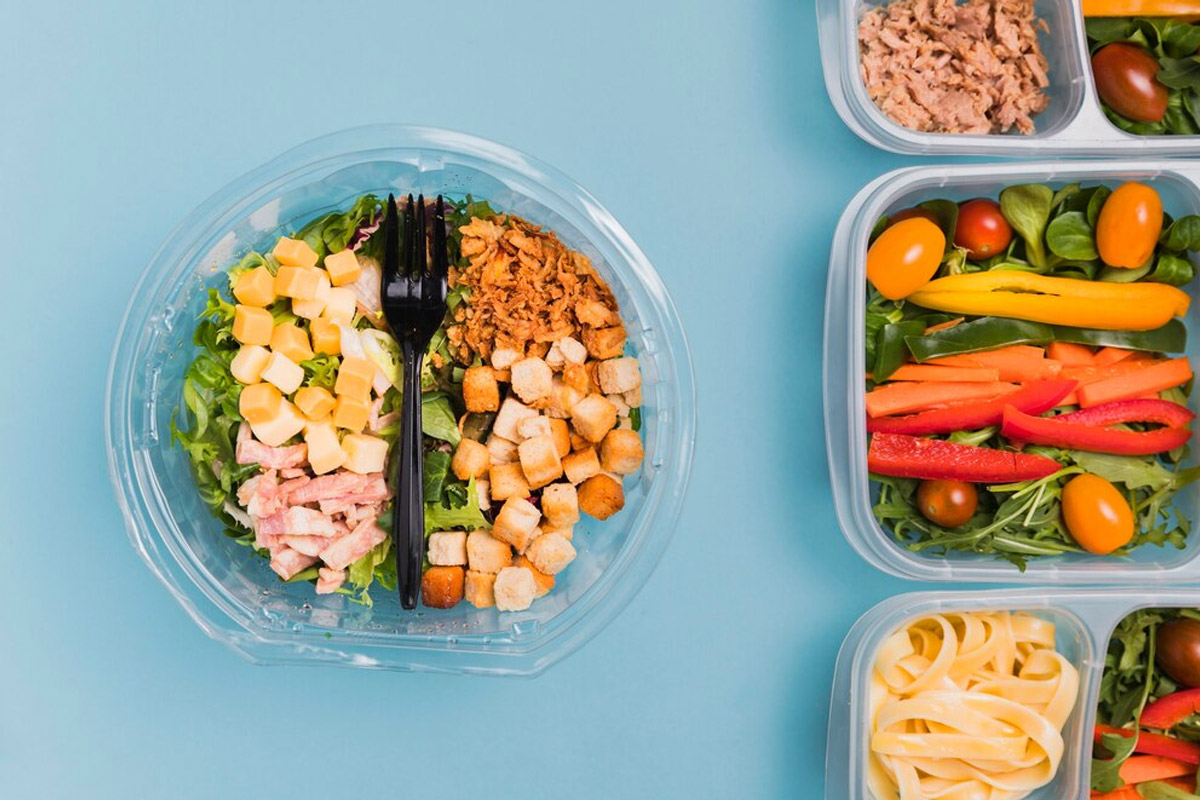Weight Gain
High-Protein, High-Calorie Foods The Best Options for Weight Gain
Gaining weight, especially in the form of lean muscle mass, requires a strategic approach to nutrition. While many focus on increasing calorie intake, it’s equally important to prioritize protein consumption to support muscle growth and repair.
High-protein, high-calorie foods offer an effective way to meet your nutritional needs while promoting weight gain in a healthy and sustainable manner. In this comprehensive guide, we’ll explore the best options for high-protein, high-calorie foods and how to incorporate them into your diet for optimal results.
1. Nutrient-Dense Protein Sources
1.1 Lean Meats: Chicken breast, turkey, lean beef, and pork loin are excellent sources of protein and essential nutrients like iron and zinc.
1.2 Fatty Fish: Salmon, mackerel, and trout provide a combination of protein, healthy fats, and omega-3 fatty acids, which support overall health and muscle growth.
1.3 Eggs: Whole eggs are a convenient and versatile protein source, containing all nine essential amino acids necessary for muscle repair and growth.
2. Plant-Based Protein Options
2.1 Legumes: Beans, lentils, and chickpeas are rich in protein, fiber, and complex carbohydrates, making them ideal for supporting muscle growth and providing sustained energy.
2.2 Nuts and Seeds: Almonds, peanuts, chia seeds, and hemp seeds are nutrient-dense sources of protein, healthy fats, and micronutrients, making them excellent additions to a weight gain diet.
2.3 Tofu and Tempeh: Soy-based products like tofu and tempeh are complete protein sources that provide a wide range of essential amino acids, making them suitable alternatives for vegetarians and vegans.
3. High-Calorie Carbohydrate Foods
3.1 Whole Grains: Brown rice, quinoa, oats, and whole wheat pasta are nutrient-rich carbohydrate sources that provide sustained energy and support muscle recovery and growth.
3.2 Potatoes and Sweet Potatoes: These starchy vegetables are rich in carbohydrates and provide a substantial amount of calories, making them ideal for fueling workouts and promoting weight gain.
3.3 Dried Fruits: Raisins, dates, and apricots are concentrated sources of carbohydrates and calories, making them convenient snacks for increasing calorie intake throughout the day.
4. Healthy Fats for Weight Gain
4.1 Avocado: Avocados are rich in monounsaturated fats, fiber, and vitamins, providing a calorie-dense option for adding to salads, sandwiches, or smoothies.
4.2 Olive Oil: Extra virgin olive oil is a heart-healthy fat that can be drizzled over salads, vegetables, or cooked dishes to increase calorie intake without adding bulk.
4.3 Nuts and Nut Butter: Almonds, cashews, and peanut butter are calorie-dense sources of healthy fats and protein, making them convenient options for adding extra calories to meals and snacks.
5. Incorporating High-Protein, High-Calorie Foods into Your Diet
5.1 Meal Planning: Planning your meals and snacks in advance can help ensure you’re consuming enough high-protein, high-calorie foods throughout the day. Start by creating a weekly meal plan that includes a variety of nutrient-dense options such as lean meats, fish, poultry, whole grains, legumes, fruits, and vegetables. Aim to incorporate protein-rich foods into each meal and snack to support muscle growth and provide sustained energy. Consider batch cooking or meal prepping on weekends to save time during the week and ensure you always have nutritious meals and snacks on hand.
5.2 Protein Shakes and Smoothies: Protein shakes and smoothies can be a convenient and delicious way to increase your calorie intake and meet your protein needs. Consider incorporating protein powder into your shakes or smoothies to boost their protein content. Choose a high-quality protein powder that aligns with your dietary preferences and goals, such as whey protein, plant-based protein, or collagen protein. Experiment with different flavor combinations by adding fruits, vegetables, nut butter, Greek yogurt, and healthy fats like avocado or coconut oil. Enjoy your protein shakes or smoothies as a meal replacement or snack between meals to support muscle recovery and growth.
5.3 Snack Smart: Snacking can be an opportunity to increase your calorie intake and incorporate nutrient-dense foods into your diet. Choose snacks that are rich in protein, healthy fats, and carbohydrates to provide sustained energy and support muscle growth. Opt for options like trail mix made with nuts, seeds, and dried fruit, Greek yogurt with fresh fruit and a drizzle of honey, or whole grain crackers with cheese and sliced vegetables. Be mindful of portion sizes and aim to include a balance of macronutrients in your snacks to keep you feeling satisfied and fueled throughout the day.
Conclusion:
Incorporating high-protein, high-calorie foods into your diet is essential for supporting weight gain and muscle growth. By focusing on nutrient-dense options like lean meats, fatty fish, legumes, whole grains, and healthy fats, you can fuel your body effectively and achieve your weight gain goals in a healthy and sustainable manner. Experiment with different foods and meal combinations to find what works best for you, and don’t hesitate to seek guidance from a registered dietitian or nutritionist for personalized recommendations. With the right approach to nutrition and exercise, you can make significant progress toward your weight gain goals and improve your overall health and well-being.

